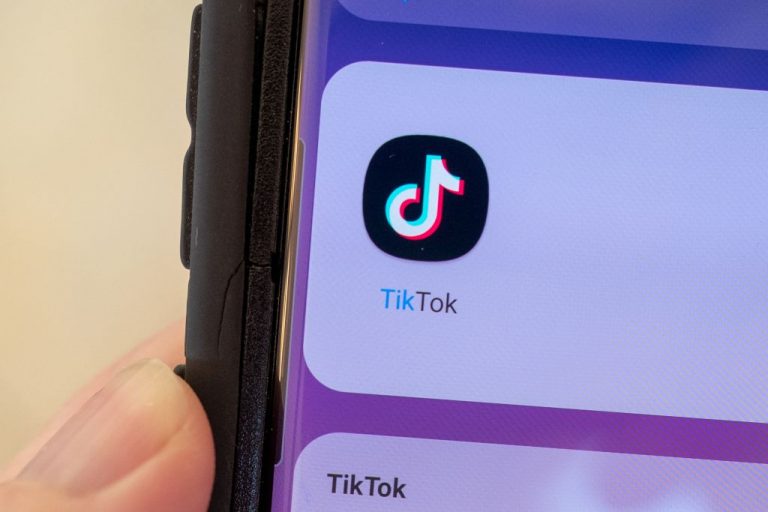A rash of videos on the popular short-form video sharing app TikTok, posted by teens and adults stating they have been diagnosed with severe mental disorders and encouraging viewers to “self-evaluate” for the diseases, are prompting some teenagers to diagnose themselves with severe mental disorders, the Wall Street Journal (WSJ) has reported.
The app, owned by Beijing-based tech giant ByteDance, and founded by Chinese billionaire, Zhang Yiming, is one of the most downloaded apps in the world and typically boasts short video clips of people dancing, performing a comedy sketch or providing a tutorial.
However, TikTok videos brandishing the hashtag #borderlinepersonalitydisorder have been garnering hundreds of millions of views with some teens convincing themselves that they are afflicted with a rare disorder.
Borderline Personality Disorder (BPD) is diagnosed in approximately 1.4 percent of the U.S. adult population and “is almost never diagnosed in adolescents, because their personalities are still forming and because symptoms such as having unstable personal relationships and exhibiting impulsive behavior, are hard to distinguish from typical teen behavior,” the WSJ reported.
Another mental illness that TikTokers are encouraging viewers to self diagnose is the even more rare affliction of multiple-personality (aka dissociative-identity) disorder. Less than one percent of the U.S. population is diagnosed with the affliction.
Success
You are now signed up for our newsletter
Success
Check your email to complete sign up
Teens who are experiencing the typical ups and downs of adolescence are deciding on their own that they are afflicted with these rare disorders after watching several videos and this is causing treatment challenges for medical professionals and in many cases fraying family relationships.
A delicate approach
Bre-Ann Slay, a clinical psychologist in Kansas City told the WSJ, “It can be tricky when there’s a strong clinging to a particular diagnosis,” and that some videos that seek to de-stigmatize mental illness, leading some teens to seek professional medical help, can be a good thing but “only up to a point.”
Dr. Slay recently began seeing several new patients a week who were self-diagnosing who stated that they were learning about conditions on TikTok prompting the doctor to create her own account to see exactly what was going on and what people were watching.
“What shocked me the most was how many videos there were about multiple-personality disorder because of how rare it is,” she told the WSJ.
In 2021, 63 percent of U.S. teens aged 12 to 17 reported using the app at least once every week.
Teens, engulfed in the online platform who self-diagnose find themselves trapped by the misinformation.
Don Grant, executive director of outpatient services for Newport Healthcare’s teen treatment center in Santa Monica, Calif. Told the WSJ, “We have to convince these kids to release their self-diagnoses but when they leave us they go right back into that TikTok community which reinforces their beliefs.”
The problem has prompted some professional therapists to take to TikTok to combat the misinformation.
Evan Lieberman, a clinical social worker in Minneapolis, boasts over a million followers on the app and uses the platform to poke fun at the self-diagnosing trend stating that teens are using a mental health diagnosis as a sort of “social currency.”
“Despite how great the newfound mental-health awareness is among teens, there seems to be a trend of using mental-health diagnoses as a social currency,” he said.
‘Overrun with videos’
Samantha Fridley, a teen who spoke with the WSJ said that she never intentionally sought out videos about mental health diagnoses but instead simply subscribed to a few mental health advocacy accounts.
However, the social-media app began serving up videos about various disorders.
Ms. Fridley said “her For You page became overrun with videos about mental-health disorders.”
“TikTok’s algorithm picked up on subtle cues from users, such as how long they lingered on a video, and then showed them more and more of the same content,” the WSJ reported.
Over a year Ms. Fridley convinced herself that she had a different diagnosis every couple of weeks. “It really messed with my head,” the teen said.
Ms. Fridley was seeking professional help to manage anxiety and depression, conditions she said worsened during the pandemic, and entered the Newport Academy residential treatment program in Virginia. During the time she was attending school remotely and was spending much of her time watching TikTok videos.
Over her time at the out-patient program Ms. Fridley, with the assistance of a professional therapist, came to realize that relating to some symptoms of a disorder doesn’t qualify someone for a diagnosis and learned to accept that the only conditions she had were depression and anxiety.
















